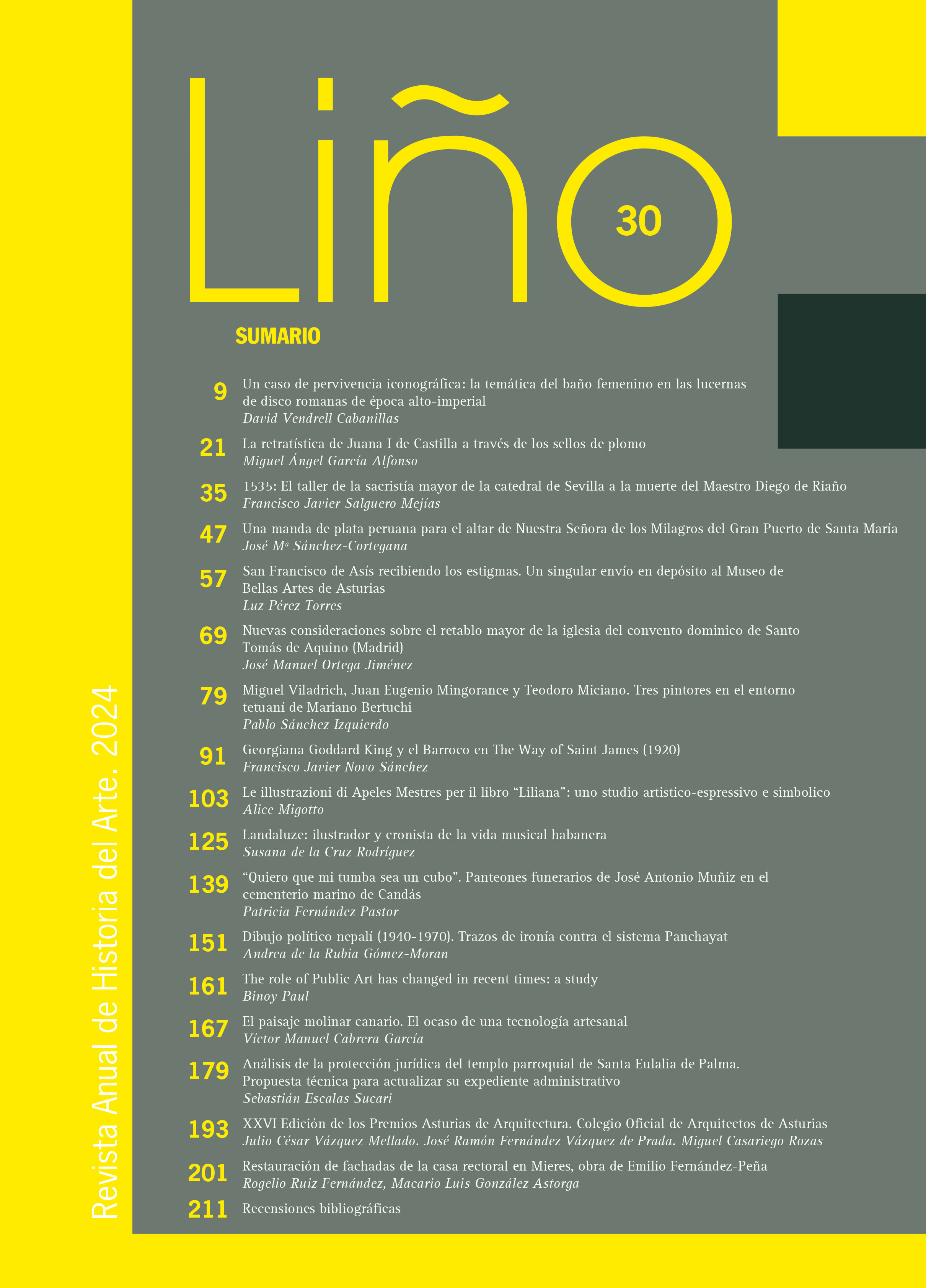Resumen
A través de la representación visual de los iconos nacionales de la montaña, el Rey y el Patrimonio Cultural de Katmandú, el arte contemporáneo nepalí se define como una herramienta que contribuye a romantizar la idea internacional del país como un mágico Shangri-La. Este artículo analiza la idea del dibujo contemporáneo a través del concepto de nepalidad como estrategia nacional promovida en los tiempos del régimen Panchayat (1962-1990). En un proceso que hibrida el realismo occidental con la cultura local, la intención del régimen era la de unificar su esencia multicultural de Nepal en torno a una sola cultura construida en torno al mismo. La Vanguardia nepalí utilizaba por tanto la nepalidad de forma casi forzada en sus obras, siendo la ironía el único medio a través del cual los artistas encontraban un resquicio para expresarse en contra de esta dictadura.
Citas
Amatya, Gehendra Man (2005): Modern Art. Katmandú: Commercial Book.
Bangdel, Dina / Messerschmidt, Don (2004): Against the Current. The Life of Lain Singh Bangdel. Writer, Painter and Art Historian of Nepal. Bangkok: Orchid Press.
Bangdel, Lain Singh (1989): Stolen Images of Nepal. Katmandú: Royal Nepal Academy.
Baral, L.S. (2012): Autocratic Monarchy. Politics in Panchayat Nepal. Katmandú: Martin Chautari.
Gellner, David (2016): “The Idea of Nepal”. En: The Mahesh Chandra Regmi Lecture, Social Science Baha, Katmandú.
Hilton, James (1933): Lost Horizon. Reino Unido: Macmillan.
Hoftun, Martin/Raeper, William (1992): Spring Awakening. An Account of the 1990 Revolution in Nepal. Katmandu: Penguin Books.
Hutt, Michale (2010): The Life of Bhupi Sherchan. Poetry and Politics in Post-Rana Nepal. Nueva Delhi: Oxford University Press.
Hutt, Michael (1997): Nepal. A Guide to the Art and Architecture of the Kathmandu Valley. Escocia: Kiscadale Publications.
Mitter, Partha (2007): The Triumph of Modernism. India´s Artists and the Avant Garde 1922-1947. Oxford: Oxford University Press.
Mlecko, Joel D. (1982): “The Guru in Hindu Tradition”. En Numen, 29 [Núm.], 33-61. Doi: 10.2307/3269931.
Morimoto, Izumi (1967): “The Development of Local Entrepreneurship: a Case Study of a Tourist Area, Thamel in Kathmandu”. En Gellner, David/Ishii, Hiroshi/Nawa, Katsuo (eds.): Nepalis Inside and Outside Nepal. Social Dynamics in Northern South Asia. Nueva Delhi: Manohar, pp. 351-380
Sever, Adrian (1996): Aspects of Modern Nepalese History. Nueva Delhi: Vikas Publishing House.
Suyin, Han (1958): The Mountain is Young. Reino Unido: Jonathan Cape Ltd.
Teissier-Landgraf, Marie Claude (1995): The Russian from Belfort. 37 years journey by painter Nicolaï Michoutouchkine in Oceania. Vanuatu: Institute of Pacific Studies.
Toffin, Gerard (2005): “From Kin to Caste. The Role of Guthis in Newar Society and Culture”.
En: The Mahesh Chandra Regmi Lecture, Social Science Baha, Katmandú.

Esta obra está bajo una licencia internacional Creative Commons Atribución-NoComercial-SinDerivadas 4.0.

